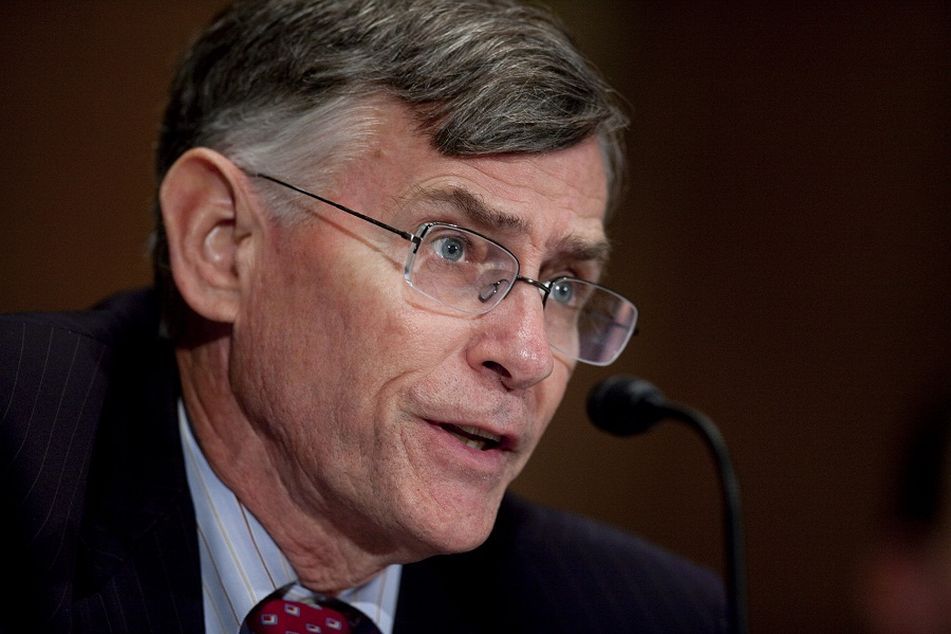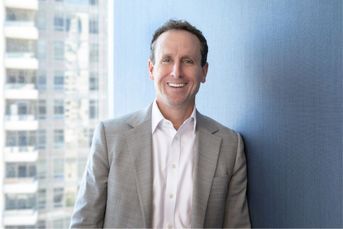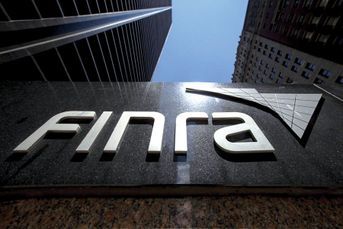Richard Ketchum, Finra chief executive, to retire
 Richard Ketchum
Richard Ketchum
The brokerage industry's chief regulator will step down in the second half of 2016 after a successor is found.
Richard Ketchum’s successor will have big shoes to fill.
Mr. Ketchum, 64, who announced his retirement as Finra’s chairman and CEO on Friday, was known across the securities industry as accessible, approachable and interested in the broker-dealer members of the self-regulatory organization that oversees 4,000 brokerage firms and 643,000 registered reps.
Mr. Ketchum told Finra staff in an email that he was retiring, but would remain in his position until the Financial Industry Regulatory Authority Inc. had chosen his successor.
During industry meetings, Mr. Ketchum routinely held off-the-cuff conversations with compliance executives about specific problems they were having, often trading business cards and personal email to start a dialogue to address their concerns.
“It’s easy to bash regulators over the years for the burden of regulation, but what’s distinct about Rick is that he’s kept his eye on the end goal of creating an effective market while also focusing on the role of consumer protection,” said Don Runkle, former chief compliance officer with Raymond James Financial Services Inc. and current director of consulting services at Edgerton and Weaver.
Mr. Ketchum, who turns 65 in December, said in an interview Friday he has been talking to the Finra board for “a long time” about retiring. As head of the regulator, he spends two days in New York and three days each week in Washington, commuting from his home in suburban New York City.
“Now is the right time to hand over the reins,” Mr. Ketchum said. “Finra is the best job I’ve had in my life. I’m tremendously proud of what we have accomplished.”
He said he would like to depart sometime next summer, depending on when the board chooses his replacement.
Over the next eight or more months that he will remain at Finra, Mr. Ketchum said he wants to continue to upgrade the regulator’s ability to use technology and market data to target examinations and enforcement. Finra is doing “cross-market surveillance” on equities and is expanding the initiatives to option trading.
Another priority is working on rules that would increase price transparency in the fixed-income markets.
“These are examples of things I’d like to see great progress on in 2016,” Mr. Ketchum said.
Practically a career regulator, with prior stints as chief executive of NYSE Regulation and president of the Nasdaq Stock Market Inc. and NASD, Finra’s predecessor, Mr. Ketchum would often get together for impromptu lunches with people in the securities industry.
“I’ve found him unusually accessible and considerate in the process,” Mr. Runkle said. “He would listen and accept criticism.
Under Mr. Ketchum’s watch, Finra has launched several initiatives. Those include: the high-risk broker program, improvements in BrokerCheck, the expansion of reporting and data of over-the-counter secondary market fixed-income trades, and the expansion of Finra’s responsibilities across stock and option trading.
“It has been a pleasure working with Rick over the past several years,” said Dale Brown, president and CEO of the Financial Services Institute, a trade group for independent broker-dealers, in a statement. “While at times we had our differences, he was always willing to listen, understand and consider the perspectives of all stakeholders.”
Of course, Mr. Ketchum has had difficulties to overcome during his stint as Finra CEO. He took over the top job the year markets bottomed — 2009 — and the number of firms overseen by Finra has declined on his watch. Finra failed in its attempt to become the de facto regulator of thousands of registered investment advisers overseen by the states and the Securities and Exchange Commission, and it also failed to win the securities industry’s support for a massive data collection system known as CARDS.
Although he intends to keep pushing Finra to improve its use of data analytics, Mr. Ketchum said he will not attempt to revive a proposal for CARDS.
The initiative, which was touted by Finra as a way to pinpoint quickly investment products that are prone to fraud, was shelved earlier this year amid industry protest about the potential costs of compiling reams of account information.
“We have no intention at this point to return to a single database, such as CARDS,” Mr. Ketchum said. “We don’t need CARDS to have plenty of data with respect to firms.”
“In some respects he’s made Finra more aggressive, but he also has attempted to understand the industry’s position and where the industry is coming from,” said Brian Rubin, a former NASD enforcement attorney and current partner with Sutherland Asbill & Brennan.
Prior to Mr. Ketchum’s taking over the top spot at Finra from Mary Schapiro, Finra staff at times did not understand the business model of independent contractor firms. A common criticism of Finra was its focus on the wirehouses, rivals to the independents.
“I think he understands the role that independent contractor firms play and their overall importance,” Mr. Rubin said. “He hasn’t tried to push them aside or ignore them.”
Learn more about reprints and licensing for this article.








